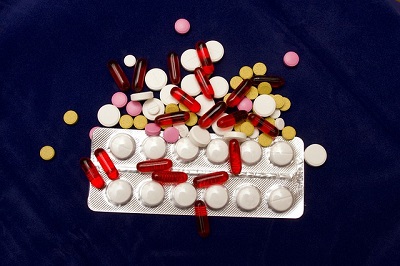Can Antibiotics be Ineffective in Treating Bacterial Prostatitis?
Prostatitis is a common male condition, and bacterial prostatitis is a type of prostatitis caused by bacterial infection. Typically, bacterial prostatitis can be controlled and eliminated by appropriate antibiotic treatment. However, there are cases where antibiotic therapy may prove ineffective.

Why does this happen? There could be several reasons.
Firstly, different strains of bacteria have varying sensitivities to antibiotics. Commonly used antibiotics in clinical practice, such as levofloxacin and ciprofloxacin, exhibit broad-spectrum antibacterial activity against various common pathogens, including both gram-negative and some gram-positive bacteria. Ceftriaxone is also commonly used for the treatment of bacterial prostatitis and has antibacterial effects against certain gram-negative and gram-positive bacteria. However, some bacteria may develop resistance to certain antibiotics, resulting in poor treatment outcomes.
Secondly, the prostate is an organ located in the pelvic region with unique tissue structure. Prostate tissue is composed of tightly packed cells, forming a natural barrier that makes it difficult for antibiotics to penetrate the infection site, leading to incomplete inflammation resolution and a higher risk of recurrence.
Additionally, the use of antibiotics can contribute to bacterial resistance, rendering previously effective antibiotics ineffective in killing the bacteria.
In cases where antibiotic treatment proves ineffective for bacterial prostatitis, doctors may consider alternative treatment methods. For example, they may prescribe different types of antibiotics or employ combination therapy to enhance treatment efficacy. Furthermore, physical therapy methods such as microwave irradiation, laser treatment, and ultrasound therapy can be used as adjunctive treatments. These physical therapy methods can improve blood circulation in the prostate tissue, alleviate inflammatory symptoms, and facilitate bacterial clearance.
In addition, complementary treatment methods can be combined to enhance immune system function and improve prostate health. Nutritional supplements such as zinc, vitamin C, and vitamin E can boost immune and antibacterial capabilities. Furthermore, improving lifestyle habits such as maintaining a healthy diet, regular exercise, and stress reduction are crucial for prostate health.
However, accurate diagnosis is crucial before initiating any treatment method. The diagnosis of bacterial prostatitis requires clinical symptom assessment and laboratory examinations. Clinical symptoms may include urinary frequency, urgency, dysuria, perineal pain, etc., while laboratory tests may involve prostate fluid examination and urine analysis. Only after a confirmed diagnosis of bacterial prostatitis can doctors formulate an appropriate treatment plan.
The treatment of bacterial prostatitis is a complex and individualized process. Each patient's condition is unique, and treatment methods may vary accordingly. It is not uncommon for antibiotic treatment to be ineffective in cases of bacterial prostatitis, but this does not mean that treatment is hopeless.
If multiple antibiotic attempts yield unsatisfactory results, patients can consider using the Diuretic and Anti-inflammatory Pill, a traditional Chinese herbal medicine, for treatment. The Diuretic and Anti-inflammatory Pill has broad-spectrum bactericidal properties and can eliminate various bacteria causing the disease. Moreover, it is a plant-mineral medicine composed of natural ingredients, ensuring continuous bactericidal effects and symptom alleviation without adverse effects on the body.
In addition to medication, patients should also adopt healthy lifestyle habits to improve prostate health. Maintaining regular sleep patterns, a balanced diet, moderate exercise, stress reduction, etc., are crucial for relieving inflammation and promoting recovery.
Furthermore, patients should avoid consuming or coming into contact with substances that may irritate the prostate. This includes spicy foods, caffeine, alcohol, and irritating foods causing allergic reactions. Additionally, avoiding prolonged sitting, excessive alcohol consumption, and excessive sexual activity can reduce the burden on the prostate and minimize irritation.
You may also be interested in:
Do Both Non-bacterial and Bacterial Prostatitis Require Antibiotic Treatment? Let's Find Out



